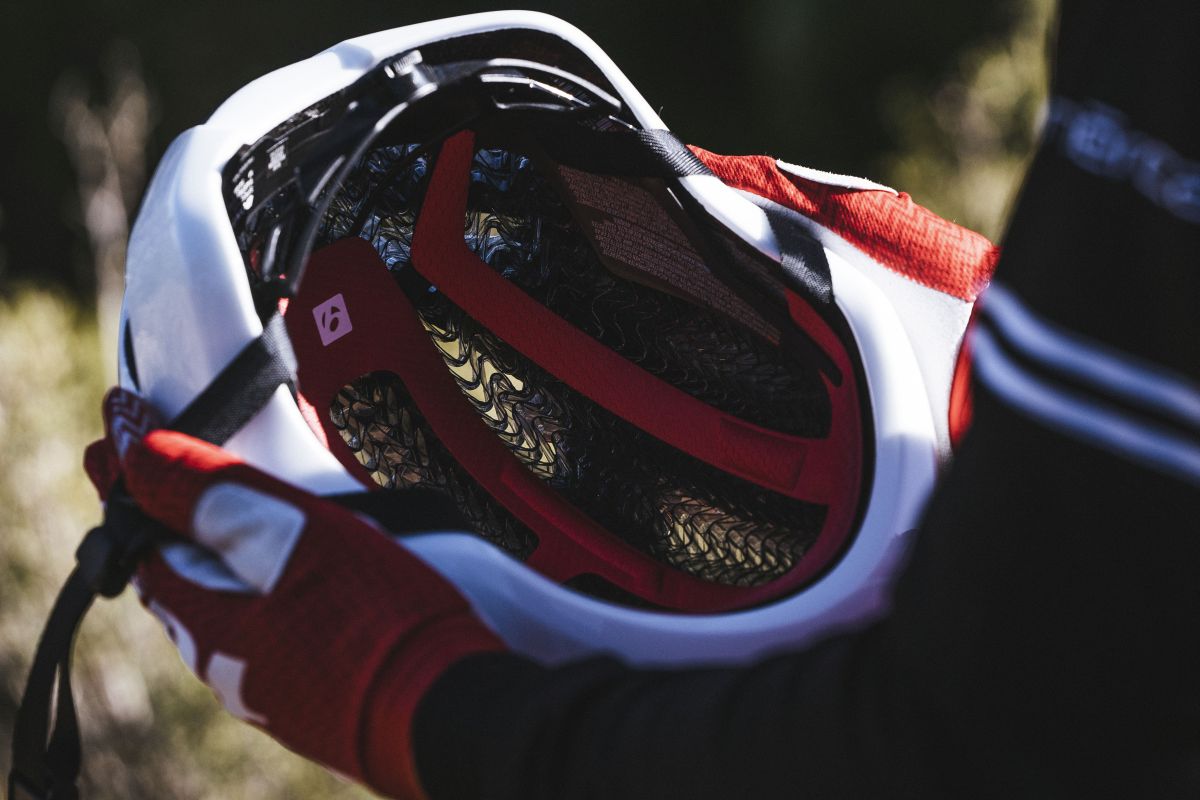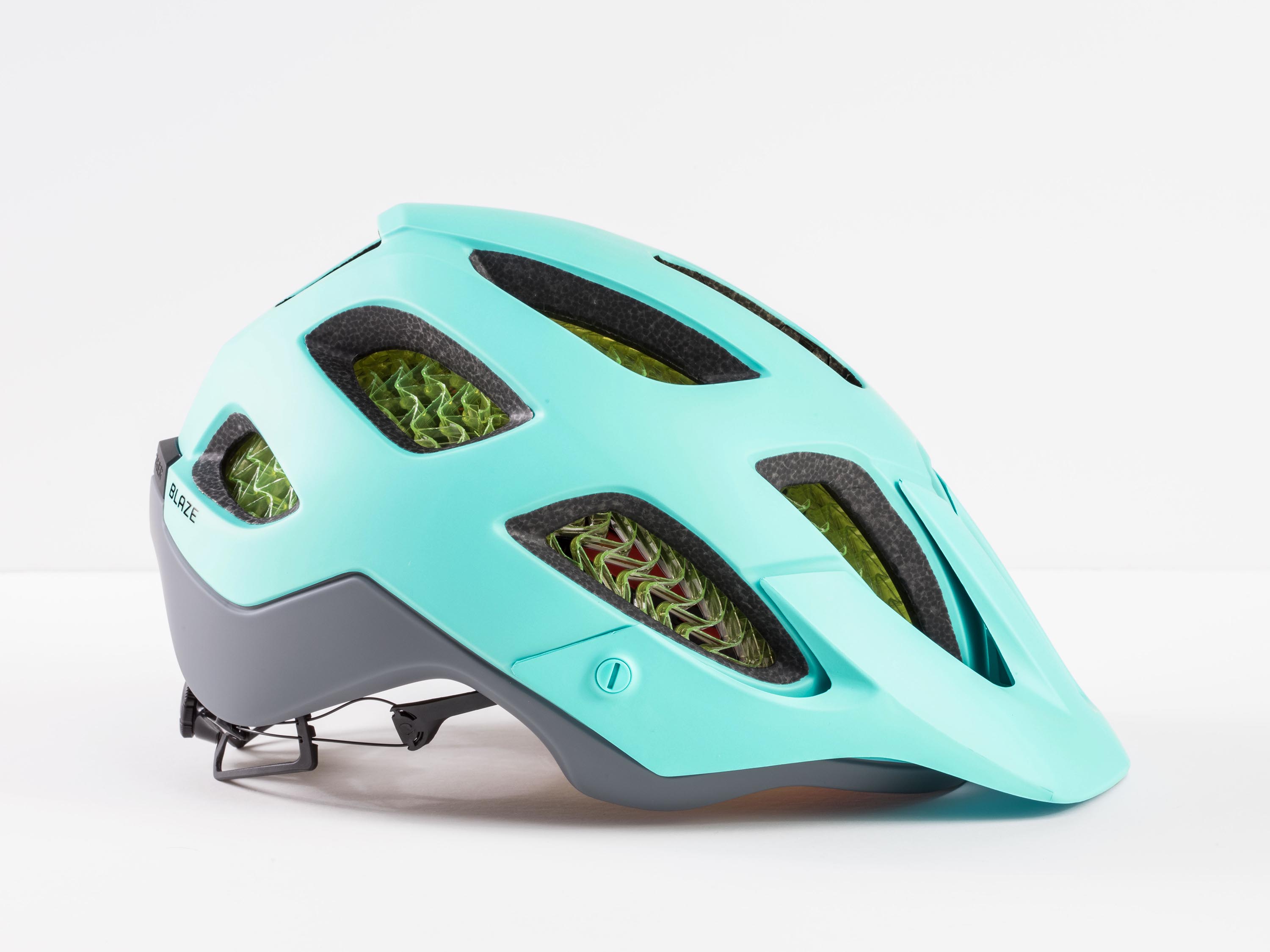Trek faces lawsuit over WaveCel safety claims
$5,000,000 lawsuit argues Bontrager's marketing was misleading
 Photo by:
Bontrager
Photo by:
Bontrager
Trek made bold safety claims when it introduced WaveCel technology. The brain injury prevention liner, featured in Bontrager helmets for road and mountain biking, is supposedly 48 times more effective than traditional EPS helmets.
This claim was quickly contested by MIPS when WaveCel was first introduced. Now, Trek’s safety claims are being challenged in court.
Trek Bicycle is being sued for $5,000,000 in the U.S., reports BRAIN. Andrew Glancey, a New York resident, is the lead plaintiff in a class-action suit against the company filed Thursday in U.S. District Court. The lawsuit alleges Trek’s claims about WaveCel significantly improving safety are “false, deceptive and misleading.”
The WaveCel lawsuit: safe vs. 48x safer
Independent testing from Virginia Tech showed WaveCel was effective, quickly earning high rankings that show the helmets should still be considered safe. That doesn’t appear to be what this lawsuit is about, though.
Instead, the suit is focusing on whether or not Trek’s claims were accurate, or dangerously exaggerated. Specifically, Trek’s claims that WaveCel is “up to” 48 times more effective than its competitors at protecting against brain injuries. But also the marketing language used in the WaveCel release that “touted by the defendant as the most significant advancement in cycling in the last 30 years.”
RELATED: Can mountain bikers tell if they’ve had a concussion?
Language describing the latest and greatest gadgets as “revolutionary” is nothing new, especially to anyone who’s been around cycling for a while. Using that language around safety concerns, however, is different. Trek’s use of that language and specific claims to describe the efficacy of a safety feature could be what gets them in trouble. Navigating the legal environment around safety requires caution, as CyclingTips details, especially in the U.S.
The suit also charges that the authors of Trek’s helmet study claiming WaveCel technology is safer, a key part of the marketing launch for the helmets, have a direct financial interest in the technology. Interestingly, the suit also alleges Trek’s study did not actually use a Bontrager WaveCel helmet. Instead, a Scott ARX helmet modified with WaveCel lining was used for testing.
Trek Responds
Glancey’s class-action suit was filed Thursday. On Friday, the Madison, Wisc.-brand responded.
“Trek believes in and stands behind our Bontrager WaveCel helmets,” a Trek spokesman told BRAIN. “This lawsuit is without merit, and we will vigorously defend against it. The plaintiff has not made an allegation of physical injury. Trek will continue to responsibly promote and improve this innovation in helmet technology.”
Are WaveCel helmets safe?
Again, this lawsuit doesn’t appear to be about whether or not Bontrager WaveCel helmets are safe to use. The issue is with how safe they are, relative to Trek’s bold claims.
The various WaveCel helmets now available continue to perform well in Virginia Tech safety studies. They are among the better-ranked helmets, even. While other helmets do outperform them, you should still feel confident wearing a WaveCel equipped helmet. There’s nothing immediately obvious in this lawsuit that should change that.
The future of safety testing
So, what does this lawsuit mean for the future of safety testing? That’s hard to say for sure, especially so early in this particular lawsuit. But there are two outcomes that are more likely than the rest.
First, the class-action suit against Trek could have a significant cooling effect on all helmet manufacturer’s willingness to make any claim about their product’s effectiveness. Even if Trek is successful in defending against the suit, other companies will want to avoid finding themselves in a similar situation in the future. Especially smaller companies that don’t have Trek’s substantial legal and financial resources to fall back on.
This would be bad for all of us, as consumers and riders, as it will only make it more difficult to tell what helmets will actually help protect us when we crash. As CyclingTips points out, the marketing language used to describe helmets is already intentionally vague.
Second, this could finally prompt the creation of a standardized, third party organization to assess safety. This is something MIPS has called for for years. As MIPS stated in its response to WaveCel in 2019, “there is still a lack of an industry-wide standard from third party testing organizations to ensure accurate information for consumers.”
That would require cooperation between brands. Rider safety is, hopefully, one thing they can all work together on.


